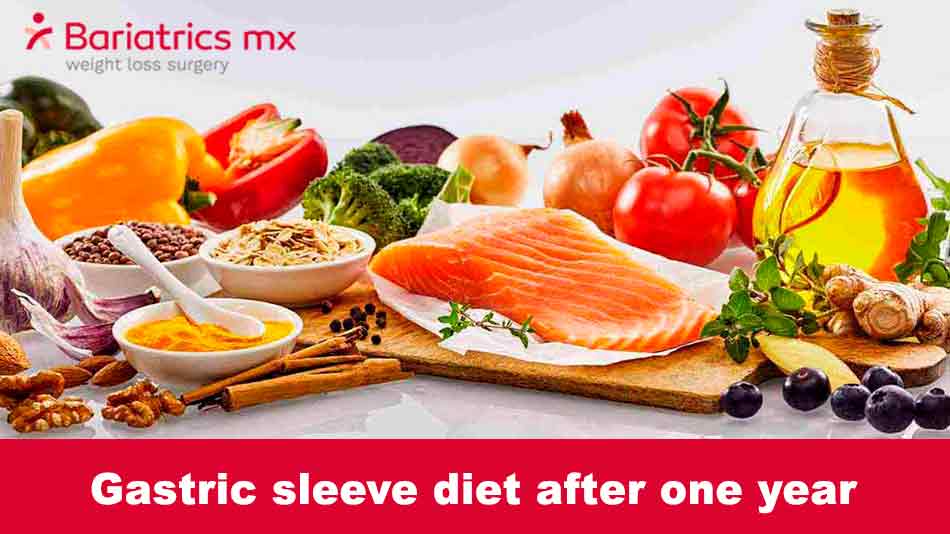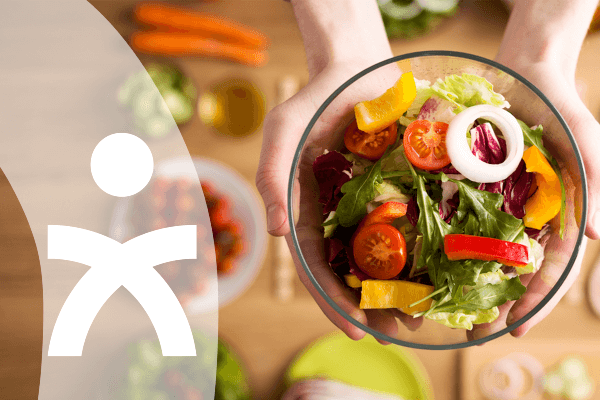Gastric sleeve diet
Your gastric sleeve diet after one year must consist of multiple smaller meals each day, making you feel full and satisfied as well as fulfill your overall daily dietary needs. Aside, from a balanced, healthy breakfast, lunch and dinner you should also include some small healthy snacks between meals as an additional source of energy. You can easily use these snacks as part of your larger meal, which will help keep your weight down.
The gastric sleeve diet after one year needs to also be low in fat and calories to make sure that you stay satiated for a long time and lose the weight you’ve gained during the year. As such, your intake of fatty and sugary foods should be significantly reduced as well as your consumption of processed and junk foods. Instead of consuming ice cream, chocolate bars or cake, you should have a glass of water with your meal, along with a couple of glasses of fruit juice, vegetable juice or milk to give you a fuller feeling.
What can you eat after 1 year gastric sleeve?
You should also begin a liquid-only diet consisting of water, vegetable juice, soups, sprouts and juices as soon as you complete your bariatric surgery procedure. You will never regain your appetite for high-fat foods or sweets if you avoid them. If you do end up eating something you don’t need, simply eliminate it from your eating plan immediately, so you do not add to the fat you’ve lost. By following this gastric sleeve diet after one year, you will not only look and feel better but also shed some excess weight, making you feel much healthier and happier after your post-operation gastric surgery weight loss treatment.
If you are considering gastric sleeve diet after one year, there are some important questions to ask. This type of weight loss surgery is a very effective method for losing weight in the stomach area, but you will need to make sure that the diet is fitting into your life. This surgery is not easy to give up. You can come back for another checkup in six months to one year, depending on your health. The following will give you an idea as to how this procedure is meant to work for you.
How much can I eat a year after gastric sleeve?
The first question to ask about how does the gastric sleeve diet after one year work is: will the weight loss to be permanent? In other words, will it stay off once you have gone through the process once again? It is possible to go through the bariatric surgery and keep losing weight, but most people do not. Some people do go through the process and want to lose a lot more than they lost in the first place, and this is when they may find that going through the process over can be difficult.
How does the gastric sleeve diet after one year work if you do not eat every meal? The first thing that happens is that you will only drink liquids, such as water, throughout the day. This gives you the impression that you are still eating, even though you are not. As your body works to process the food that you take in, your stomach will fill up with liquid, and you will feel full throughout the day.
You may wonder why you cannot eat every meal, because you think this would not be healthy. This is because your stomach will get used to having smaller amounts of food at each meal, so you will not feel hungry as often. Your stomach will also be able to absorb the nutrients in your meals because it will be smaller. You may feel less hungry in the future, which means that you will probably be able to eat more meals per day.
However, you should note that your intake of fats, carbohydrates, and protein will be changing as well. You will be eating more fruits and vegetables per day, which are higher in fiber and lower in calorie intake. You will be eating less fats and lower calorie foods like butter and cream. Meat will be staying out of your diet, so you will have to substitute it with proteins like eggs, chicken, and fish. Even though you are eating more per day, it is still not enough to replace what you have lost during the first year of the diet.
How many calories should I eat 1 year after gastric sleeve?
After one year on the gastric sleeve pre-op diet, you will then be moving to the post-op diet. You will not be eating the sleeve pre op foods anymore, because your doctor will need to transfer you to the post of ward. This time you will be eating the GI diet bars (also known as the bariatric solution diet). These bars are lower in calories and fat than your original bariatric solution. After a little more time on the post op diet, you will then be moving into the lap-band or gastric bypass surgery.
Your gastric sleeve diet after one year should essentially be based on your lifelong commitment to eating a high protein, low carbohydrate and low fat diet. For the first two years post-op gastric sleeve diet after weight loss surgery, make it a habit to always eat carbohydrates (like pasta, rice or bread) first on your plate and fruits and vegetables second. Don’t go overboard by eating a lot of “empty calories” like sodas and coffee. These empty calories add nothing to your nutrition and may even be harmful to your body. Foods like potato chips and sugary desserts should be eaten sparingly after a meal. This will keep your calorie intake down so that your digestive system will be able to process the food you consume more efficiently.
After the first two years of following your gastric sleeve diet after one year, slowly introduce more sugary and salty foods into your diet. You may need to experiment with varying the amount of sweet and salty foods in your meals so you don’t get too hungry and feel full too soon. One of the reasons why some people tend to feel less hungry after eating sugary snacks is because the sugars boost your blood glucose level, which means you will feel full much faster than if you ate a carb-rich meal. It also helps you break the monotony of feeling hungry and overeating every meal.
After the first few months of following your gastric sleeve diet after one year, gradually introduce more protein into your diet. You can do this by replacing all of your sugary treats like cookies, candy bar, and a cake with a handful of quality protein bars. If you feel you need more protein, consider purchasing lean meats like chicken breast and skinless turkey instead of opting for a larger selection of fatty meats. Protein can help you feel fuller longer. And if you follow a protein-rich breakfast before your exercise, your body will be less likely to get tired right away when you do your daily exercises.
After one year of following the gastric sleeve diet after one year of bariatric surgery, you will likely be eating smaller portions more often. You’ll eat less in each meal and snack. You’ll need to adjust your eating habits to compensate for the loss of all of your extra food, but you should gradually feel healthier. Since you lost so much weight, you probably also lost some of your hunger.
You can eat more vegetables and lean meats during your diet. Your intake of vegetables and lean meats should range up to one or two eggs per day. Eat more fruits, nuts, and whole grains during your meals. You should replace soda pop with unsweetened and non-faticed drinks. Keep in mind that you may experience cravings for some foods after you start your diet, and you should compensate your cravings with healthy alternatives.
Snacks will be limited to six ounces of fruit and/or juice per day. Snacks can be replaced with fiber-rich snacks such as raw vegetables, unsalted nuts, dried fruit, or whole grain crackers. After your third week of following the gastric sleeve diet plan, you should slowly introduce solid foods. Your goal is to keep your daily intake of solid foods at about a half serving per day. If you do not tolerate snacking very well, you can increase your daily solid food intake to one serving per meal.
After your first two weeks of following the gastric sleeve diet plan, you can add some cooked meats to your diet. You can eat lean meats such as low-fat or non-fat beef, turkey, fish, or chicken; you can also eat eggs with the proteins. You can eat lean proteins with the carbohydrates every meal, but remember that you do not have to drastically reduce the amount of carbohydrates that you eat; your body will still need the carbohydrates for energy.






